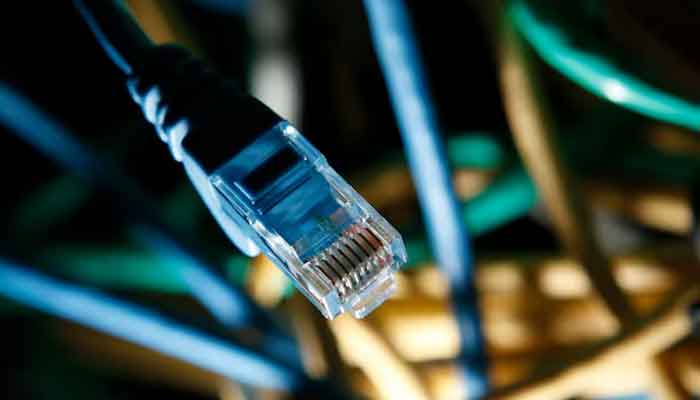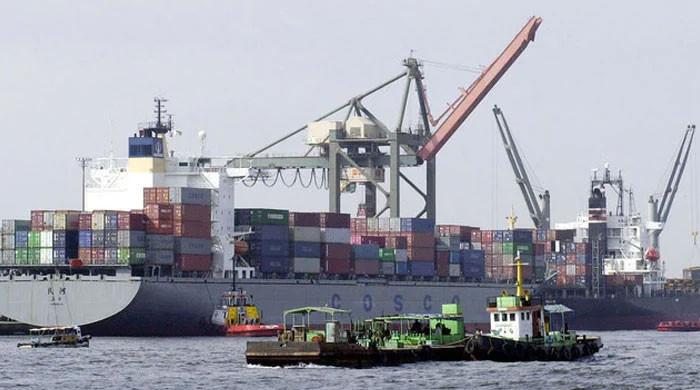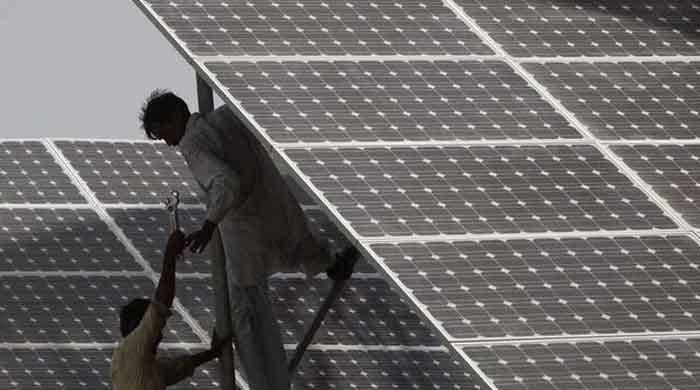Pakistan enhances global connectivity with Africa-1 submarine cable: Wispap
Milestone is expected to alleviate country’s bandwidth challenges, says Wispap's chairperson
February 25, 2025

- Arrival of Africa-1 aims to provide much-needed bandwidth expansion.
- Cable system will link Pakistan to key markets, including UAE, others.
- Increased bandwidth expected to enhance business operations, drive innovation.
KARACHI: Wireless and Internet Service Providers Association of Pakistan (Wispap) Chairperson Shahzad Arshad disclosed that Pakistan has taken a significant step in enhancing its digital infrastructure with the landing of the Africa-1 submarine cable at Sea View Beach, Karachi, The News reported.
He added that the milestone, achieved through a consortium of global telecom giants, is expected to alleviate the country’s bandwidth challenges and bolster its position in the international digital landscape.
In his statement on Sunday, the chairperson said: “For the past eight months, Pakistan has grappled with increased internet latency and bandwidth limitations, affecting businesses, enterprises and freelancers."
"The arrival of Africa-1 — a high-capacity sub-sea cable spanning over 10,000 kilometres — aims to address these issues, providing much-needed bandwidth expansion and improving connectivity across the region," he said.
The Africa-1 consortium includes major players such as Mobily (Saudi Arabia), e& (UAE), G42 (UAE), Telecom Egypt, Zain Oman International (ZOI), Algerie Telecom, and TeleYemen.
The cable system will link Pakistan to key markets, including Saudi Arabia, UAE, Egypt, Sudan, Algeria, France, Kenya and Djibouti, integrating the country more closely with global networks.
Industry leaders view the cable’s landing as a boost to Pakistan’s Digital Vision, reinforcing national telecommunications infrastructure and creating new opportunities for technological advancement.
Increased bandwidth is expected to enhance business operations, drive innovation, and improve user experiences, making Pakistan more competitive in the global digital economy.
Arshad said: “Concerns remain over market concentration in Pakistan’s international gateway sector. Currently, Pakistan has only two or three dominant players controlling the international gateway market, creating a monopoly that limits competition, keeps prices high, and restricts improvements in service quality.
“To truly benefit from enhanced connectivity, it is imperative that the government, especially the Ministry of IT & Telecom (MoITT) takes necessary steps to encourage both international and local companies to enter the market and establish multiple gateways. A diversified international gateway ecosystem would not only drive down bandwidth costs but also improve the overall quality of service for end users.”
The Africa-1 cable system is set to become operational in early 2026, with expectations of faster, more reliable internet fostering digital transformation across multiple industries, including e-commerce, fintech, education and healthcare.
Improved connectivity could also attract foreign investment into the country’s IT and telecom sectors, further fuelling economic growth.
As the country moves towards stronger digital integration, stakeholders emphasise the need for equitable access to high-speed internet.
Addressing the digital divide remains a priority, ensuring that the benefits of enhanced connectivity extend to businesses and consumers nationwide.











